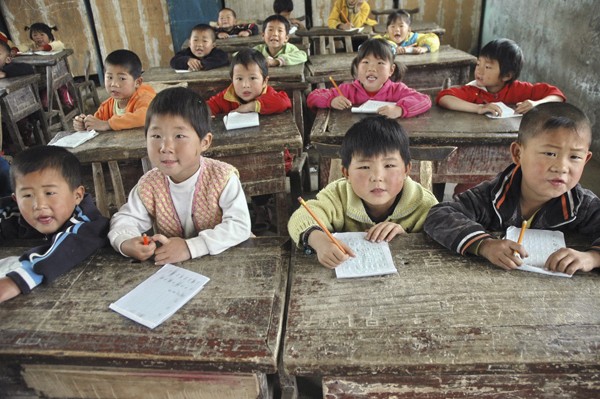For Yu Runhan, a 23-year-old teacher in middle school, teaching in Southwest China's Yunnan Province is a hard and challenging task.
Yu is currently teaching at Yi Autonomous Prefecture of Chuxiong where students came from Yi ethnic minority. With Mandarin language as the standard language for teaching, students who use their native language find it difficult to learn and quickly lose interest in their education.
According to Yu, most of these students would go back to their homes to do agricultural work in farms or become construction laborers in the cities.
The language barrier is a major problem in the educational system and is one of the reasons that makes educating the indigent impossible.
Last Nov. 2014, the central government developed and approved the Enhancing Underprivileged Children Development Plan for 2014 to 2020.
The plan's main objective is to provide a better prenatal care and cheaper but effective education in school for the 680 poverty-stricken areas. It also aims to uplift the lives of 40 million children who are in poor health and in dire need of education.
The plan sets a goal to decrease maternal death rate by 30 percent out of 100,000 people. Aside from this, the plan also aims to lower death rate of 12 per 1,000 for newborn babies and by 15 per 1,000 for children under five years old through the National Imunizaton program which gives free vaccination.
The plan also includes provision for more schools and more teachers to be sent in rural and remote areas.
Meanwhile, Yu was able to develop her own way of helping her students by making studying easier. Since Yu believes that reading plays a major role in the development of a child's education and skills, she provided her students a reading corner with materials such as old books and magazines as references. Students, based on her observation, loves to read, whether they are in or out of school.
Agricultural expert Dang Guoying of China Academy of Social Sciences said that absence or lack of education especially in the early years is a big stumbling block for Chinese people in their fight for poverty.
Dang also stated: "The plan is a key step to promote the development of underprivileged children."
Deputy director Xiong Bingqi of the 21st Century Education Research Institute in Beijing suggested that provincial governments should increase their financial support because financial security is a key factor for the implementation and success of the plan.



























